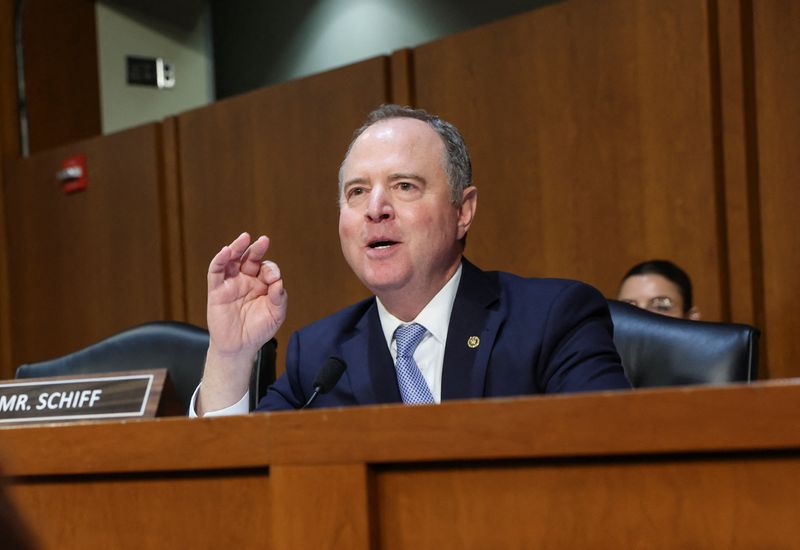US Senate to consider war powers resolution to block strike on Venezuela

By Patricia Zengerle
WASHINGTON (Reuters) -U.S. senators are due to vote on a resolution on Thursday that could keep President Donald Trump from attacking Venezuela without congressional authorization, a day after administration officials told lawmakers that Washington did not yet have a legal justification for strikes on Venezuelan territory.
The Senate is due to vote on Thursday evening on a war powers resolution whose lead sponsors are Democrats Tim Kaine and Adam Schiff and Republican Senator Rand Paul. Weeks of U.S. strikes on boats off Venezuela’s coast have heightened concern that Trump will launch an attack on the country’s territory.
Trump has dangled the possibility of land attacks on Venezuela for weeks, saying at one point that he had authorized the Central Intelligence Agency to conduct covert operations in the country.
Last week, he denied he was considering strikes inside Venezuela, appearing to contradict his previous comments even as Washington continued to build up a large military presence in the Caribbean, with fighter jets, warships and thousands of troops.
Secretary of State Marco Rubio and Secretary of Defense Pete Hegseth briefed lawmakers on the issue on Wednesday.
“Based on that briefing, I think the administration does not want to go to war with Venezuela,” Adam Smith, the ranking Democrat on the House of Representatives Armed Services Committee, told the Atlantic Council.
“But then again, President Trump is rather known for his – what would be the best way to put this – chaotic approach to things. He’s one to change his mind very quickly. So who knows?”
Senator Mark Warner, the top intelligence committee Democrat, said the legal justification for the boat strikes laid out by administration officials did not include justification for direct attacks on Venezuelan territory.
“Nothing in the legal opinion even mentions Venezuela,” Warner told reporters as he left Wednesday’s briefing.
Some legal experts say the strikes may violate international law as well as U.S. laws against murder and prohibitions on assassination.
Members of Congress from both parties have complained they have received scant information, such as who was killed, evidence of trafficking, the buildup’s cost or the administration’s long-term Latin American strategy.
RESOLUTIONS
In the past two months, the Trump administration says that U.S. forces have launched at least 16 strikes against vessels in the Pacific and southern Caribbean that have killed at least 65 people.
The administration insists those targeted were “narco-terrorists” transporting drugs that endangered Americans, without providing evidence or publicly explaining the legal justification for the decision to attack the boats rather than stop them and arrest those on board.
The U.S. Constitution requires any president to obtain Congress’ approval before launching a prolonged military operation.
“The time is right for Congress to step in and reassert our congressional responsibility,” Schiff told a news conference before Thursday’s vote on the resolution.
The Senate blocked a resolution last month that sought to stop the boat strikes by a narrow 51-48 vote, mostly along party lines, with two Republicans backing the resolution and one Democrat opposing it. Trump’s fellow Republicans said the president was merely keeping a campaign promise to attack drug cartels.
Kaine and Schiff said they hoped the new resolution, which addresses potential direct strikes on Venezuela, would attract more Republican support.
(Reporting by Patricia ZengerleEditing by Humeyra Pamuk and Rosalba O’Brien)









